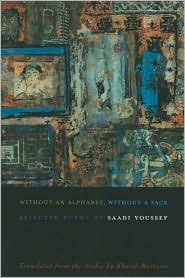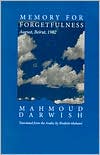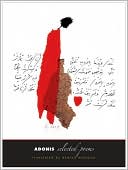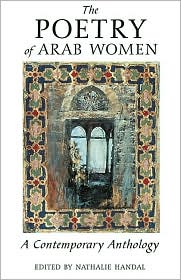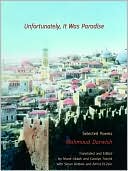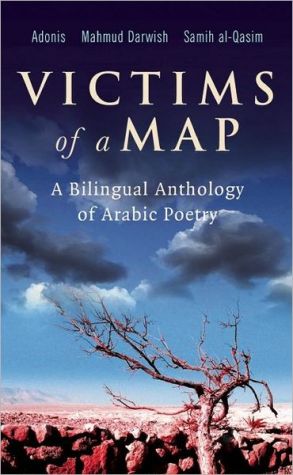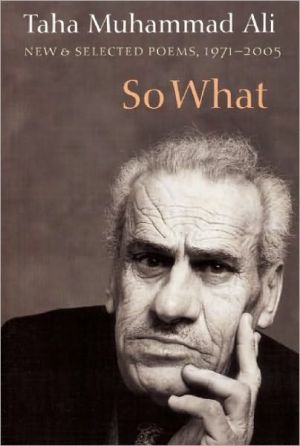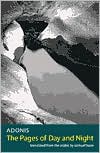Without an Alphabet, Without a Face: Selected Poems
This Iraq will reach the ends of the graveyard.\ It will bury its sons in open country generation after generation,\ and it will forgive its despot...\ It will not be the Iraq that once held the name.\ —from "A Vision"\ Living his life in exile—a series of forced departures from numerous countries—Iraqi poet Saadi Youssef also writes outside the long-standing forms of traditional Arabic poetry. In the words of Salma Khadra, a critic of Arabic poetry, "Youssef's poetry abounds with the sights,...
Search in google:
This Iraq will reach the ends of the graveyard.It will bury its sons in open country generation after generation,and it will forgive its despot...It will not be the Iraq that once held the name.—from "A Vision"Living his life in exile—a series of forced departures from numerous countries—Iraqi poet Saadi Youssef also writes outside the long-standing forms of traditional Arabic poetry. In the words of Salma Khadra, a critic of Arabic poetry, "Youssef's poetry abounds with the sights, smells, colors, and movement of life around him, depicting scenes of great familiarity and intimacy. This is a great achievement in the face of the rage and fury and technical complexities of much of the other poetry written by his contemporaries." Beautifully translated by Khaled Mattawa, Graywolf is proud to present this vital voice to the United States.Publishers WeeklyBorn in 1934 in Basra, Iraq, Youssef has recently settled in London after a peripatetic adult existence. These poems drawn from his 30 books are organized by date and place of composition: Baghdad (1972-1979), Algeria (1980), Yemen (1981-1982), Beirut (1979- 1982), with later stops in Paris, Amman, Damascus, Berlin, Belgrade and Cairo. The poems work brilliantly through their differing times and places, pushing unflinching description through a steady determination to foment a more just world: "This watered wine/ awaits its moment,/ maybe in the lines of a song/ or in a narrow bed." Often, Youssef will address anonymous figures he comes across, creating a sense of fellowship and shared longings from the slightest of materials: "Think about it:/ Can we talk in a restaurant/ or find a river to dip our hands in?/ Or should we be content with breathing,/ or let ourselves be snuffed out with a question?" The Libyan-born Mattawa (Ismailia Eclipse) emigrated to the U.S. in 1979, and does an excellent job rendering the layered complexity of the poems. Mattawa's translations of Youssef's declarative iterations-"The room shivers/ from distant explosions./ The curtains shiver./ Then the heart shivers./ Why are you in the midst of all this shivering?"-create a center around which these poems move. (Dec.) Forecast: Visa issues may prevent Youssef from touring in support of this book, but Mattawa, who has been publishing these translations in literary journals and who is based at the University of Texas at Austin, is available; look for strong support from campus reading series and post-colonial literature courses.
IntroductionReception3Night in Hamdan7Insistence8Night Fugitive9In Their Hands10A Native Song to a Wounded Smuggler11Martyrdom13The Mouse14To Socialism15A Secret16The Murdered Come Out at Night17Whims18Three Stories from Kuwait20The River22Old Pictures from Kout al-Zain23Drowsiness25Algerian Glances29The Other Person31Spanish Plaza33Three Bridges35Solos on the Oud38Oleander Tree40Shatt al Arab41The Ends of the African North43L'Akhdar Ben Youssef and His Concerns49In Those Days52On L'Akhdar Again54The Collapse of the Two-Rivers Hotel57Noontime58House of Mirth59Solitude61The New Baghdad62The Forests64The Gardener65How L'Akhdar Ben Youssef Wrote His Last Poem66Nocturnal70Enemies71The Porcupine77First Snow81The Flags82The Village83Poetry85The Visit86April Stork87Scene91Summer92Sparrows93A Moment94The Spring95Immersion103A Friendship105Days of June107Maryam Comes110From "Daily Chores"114Inheritance119The Orchard120About That Lizard, About This Night121A Fever124A Hot Night125A Woman126Lines127The Chalets Bar128Scene129A Cloud130Crawling Plant131Thank You Imru ul-Qais132Autumn136Tower137Chemical Weapon139The Trees of Ithaca143Cavafy's House1511989153The Cold154Abduction155The Lost Letter156Endings159The Light160Snow May Fall162The Moment163On the Red Sea165Attention166For Jamal Jumaa167The Kurdish Quarter168The Hermit169America, America172The Attempt177Trying to Flee178A Vision179Happiness180Notes183
\ Publishers WeeklyBorn in 1934 in Basra, Iraq, Youssef has recently settled in London after a peripatetic adult existence. These poems drawn from his 30 books are organized by date and place of composition: Baghdad (1972-1979), Algeria (1980), Yemen (1981-1982), Beirut (1979- 1982), with later stops in Paris, Amman, Damascus, Berlin, Belgrade and Cairo. The poems work brilliantly through their differing times and places, pushing unflinching description through a steady determination to foment a more just world: "This watered wine/ awaits its moment,/ maybe in the lines of a song/ or in a narrow bed." Often, Youssef will address anonymous figures he comes across, creating a sense of fellowship and shared longings from the slightest of materials: "Think about it:/ Can we talk in a restaurant/ or find a river to dip our hands in?/ Or should we be content with breathing,/ or let ourselves be snuffed out with a question?" The Libyan-born Mattawa (Ismailia Eclipse) emigrated to the U.S. in 1979, and does an excellent job rendering the layered complexity of the poems. Mattawa's translations of Youssef's declarative iterations-"The room shivers/ from distant explosions./ The curtains shiver./ Then the heart shivers./ Why are you in the midst of all this shivering?"-create a center around which these poems move. (Dec.) Forecast: Visa issues may prevent Youssef from touring in support of this book, but Mattawa, who has been publishing these translations in literary journals and who is based at the University of Texas at Austin, is available; look for strong support from campus reading series and post-colonial literature courses.\ \
